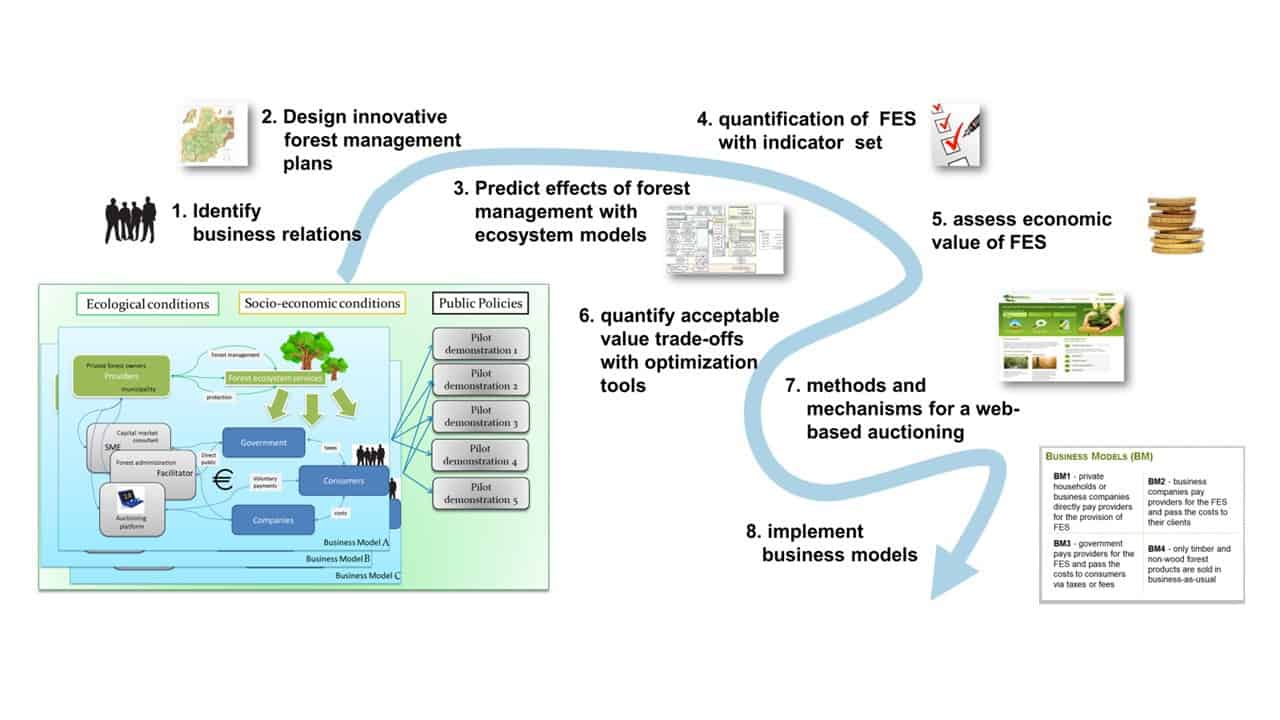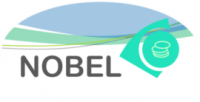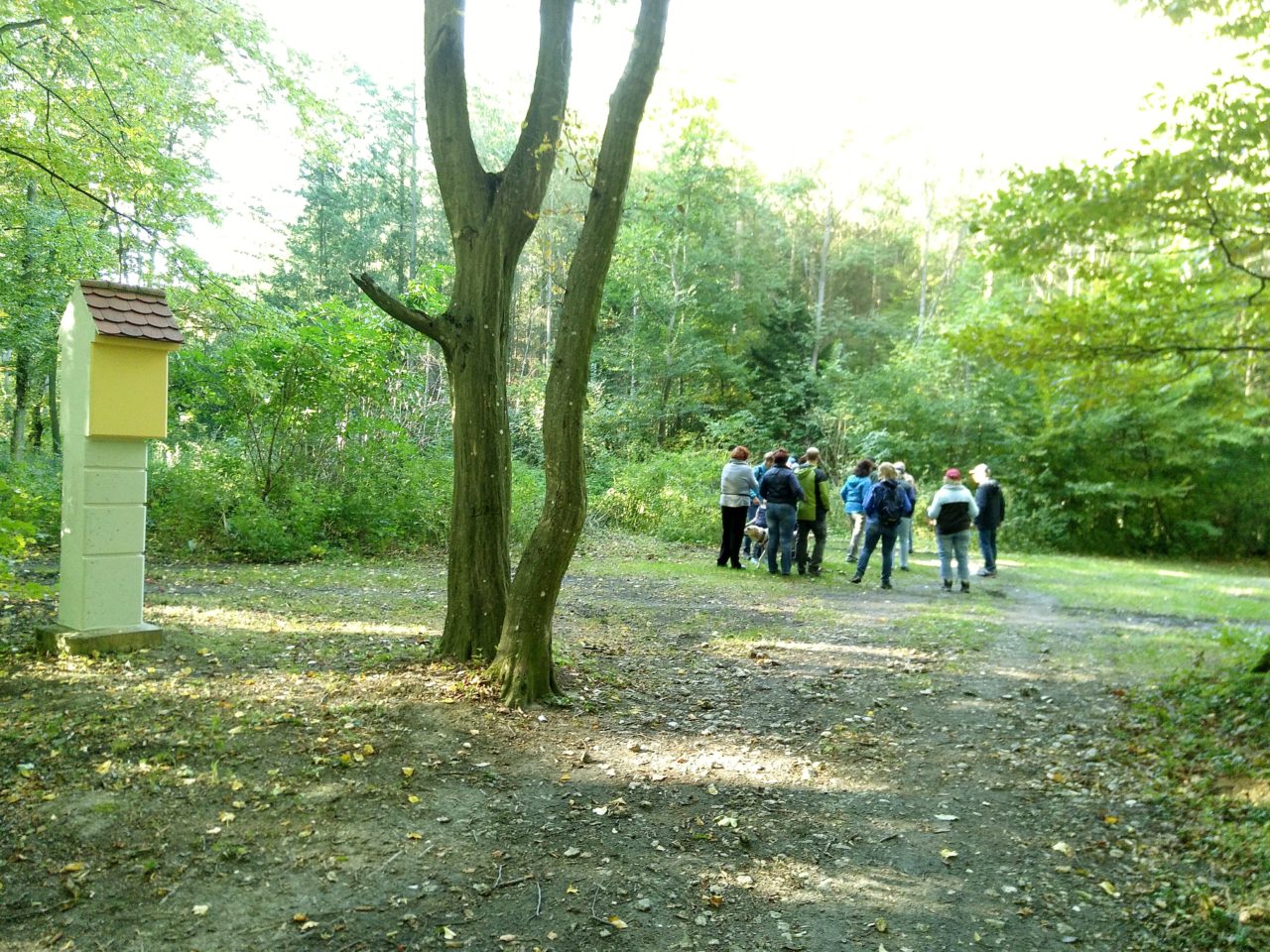Introduction

European forests provide a range of goods and services. Some are valued by existing markets (i.e. wood and non-wood products), and others like “public goods” (i.e. they are non-excludable – everyone benefits from them like carbon sequestration – and they are not subject to consumption rivalry) or “common-pool resources” (i.e. they are non-excludable goods like recreation or water supply, but subject to competition in use) not. The regulatory framework of European forest policies and forest-related policies (e.g. EU 2020 Biodiversity Strategy, EU 2030 Climate and Energy Policy Framework) influences the provision of forest goods and services. However, forest ecosystem services in Europe are often non–marketed public goods or common pool resources and land owners are not rewarded for its provision by the markets. In recent years, there have been several initiatives to increase society’s awareness of ecosystem services and to discuss mechanisms to pay for sustaining them. Payments for Ecosystem Services (PES) have been identified as an important mechanism to close the gap between the demands of the society and the service providers. The number of PES mechanisms increases while two main approaches can be seen: (i) Paying to maintain or enhance the services that an ecosystem provides, (ii) Paying to rescue those services at risk, or prevent a change of land-use with potential negative impacts. Whichever mechanism or business model is adopted, an important element for a functioning PES approach is, that those who pay are aware that they are paying for an ecosystem service that is valuable to them and those who receive the payments engage in management activities that secure the supply of ecosystem services.
Objectives
The general objectives of NOBEL are to assess the current and future role of marketable and non-marketable forest functions, goods and services (called “forest ecosystem services”, FES) and to develop strategies and mechanisms for their sustainable provision. For this purpose NOBEL will apply economic valuation methods (e.g. Cost based and preference based methods) to assess the costs and benefits of the most important ES in Europe and identify those regions which are of high relevance for the provision of ES. The costs for the provision and the societal benefits will be assessed for current and future conditions by using regional case studies (pilot demonstrators) from different European regions. NOBEL will analyse public and private financing mechanisms for the enhanced provision of these forest externalities in Europe, develop options for market-based mechanisms, present best practice examples, and prepare strategies and guidelines for policy-makers in order to implement new mechanisms and to foster the provisioning of ES. The project goals are:
- Development of innovative methods for assessing the economic, social and ecological values of wood products and services at regional level
- Development of business models, processes and structures in politics and economy to internalize the socio-economic value of non-marketed ecosystem services
- Identify combination of business models with policy tools to enable and weigh payments for ecosystem services in forest management
- Demonstration and comparison of alternative approaches in pilot studies using a web-based auction platform
NOBEL will focus on the interface between management planning, environmental economics and policy analysis using existing and novel tools and models to address the supply of a wide range of ecosystem services. Identifying the most suitable business models for a given socio-economic, ecological and political situation and fostering a sustainable management is the ambitious goal.
Business Models in NOBEL
In NOBEL three types of business models will be considered, a) direct interaction between FES providers and FES beneficiaries b) interaction between business companies and FES providers where companies pay directly to providers and pass the costs (totally or partially) to their clients, and c) interaction between government and FES providers, where the government pays providers for their services and passes the costs to consumers via taxes or fees. In implementing these business models, alternative mechanisms for the payments (e.g. voluntary payments) will be explored. A web-based auctioning platform will be developed to support the design and implementation of business models.




